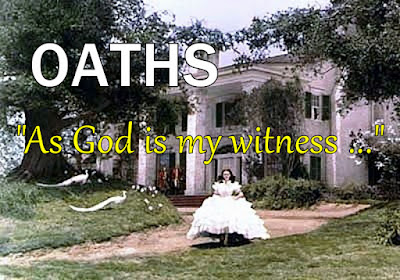WAITING
Luke 2:22-40
Greg Brown has a song called "Waiting." Everybody's waiting for something: the county fair; the return of a friend; a bus to take them to someplace better; a new job; a personal epiphany or spiritual enlightenment. Everybody's waiting for something.
When we wait, we have three options. One is to ignore the possibility of positive changes and just lapse into a state of passive hopelessness, going about life as usual.
The second is to wait, and then, out of frustration or impatience, take matters into our own hands. If you remember the story of Abraham and Sarah, trying to fulfill God's promise of heirs to the childless couple by having Abraham sire a son by Sarah's maid, well, you know that usually doesn't work out very well.
The third option is the one we see modeled by Simeon and Anna in this passage from Luke. It is actively waiting in expectancy, in eager hope. It's living with no doubt that what God has promised us, God has already said "yes" to. It is looking at our troubles, our challenges, and even our heartaches through the eyes of heaven.
The confidence that comes from this kind of hope is based on who we know God is. Both Simeon and Anna were devout people. They weren't just waiting passively for the fulfillment of the Jewish messianic hopes and the redemption of Isreal -- they were engaged with God and training their eyes and their hearts to be ready for the time when God would say, "Go" and "prophesy." The training regimen for developing our own "eyes of heaven" are prayer, fasting, studying the Bible, receiving Holy Communion and worship.
It is important to remember that when waiting in expectancy that we not bypass God by acting on our own human wisdom. Action born out of expectancy comes from what God has spoken. II Peter 1:21 says, "No prophecy [that is the revelation of God's Word and will] ever came by the impulse of men, but men moved by the Holy Spirit of God." Both Simeon and Anna were obedient to the direction and guidance of the Spirit.
Waiting in expectancy is not wishful thinking. It is building our lives on and around the hope that is ours through Jesus Christ. Such hope affects the decisions we make and the actions we take, including what we do with this awesome gift of hope.
When Anna's hope was fulfilled, she told everyone who would listen to her that the Christ had come. She didn't keep it to herself.
People are hoping that 2012 will be a better year. They're out there waiting for something: for better economic times, for better leadership; for jobs; for peace; for answers; for comfort; for hope. They're waiting for something lasting and for something that fulfills their deepest longings. Christ continues to come into this world and to these people. As Christians, we are called to be his hands and feet and to share the hope and the love that Christ has given us.
What are we waiting for?
Greg Brown has a song called "Waiting." Everybody's waiting for something: the county fair; the return of a friend; a bus to take them to someplace better; a new job; a personal epiphany or spiritual enlightenment. Everybody's waiting for something.
When we wait, we have three options. One is to ignore the possibility of positive changes and just lapse into a state of passive hopelessness, going about life as usual.
The second is to wait, and then, out of frustration or impatience, take matters into our own hands. If you remember the story of Abraham and Sarah, trying to fulfill God's promise of heirs to the childless couple by having Abraham sire a son by Sarah's maid, well, you know that usually doesn't work out very well.
The third option is the one we see modeled by Simeon and Anna in this passage from Luke. It is actively waiting in expectancy, in eager hope. It's living with no doubt that what God has promised us, God has already said "yes" to. It is looking at our troubles, our challenges, and even our heartaches through the eyes of heaven.
The confidence that comes from this kind of hope is based on who we know God is. Both Simeon and Anna were devout people. They weren't just waiting passively for the fulfillment of the Jewish messianic hopes and the redemption of Isreal -- they were engaged with God and training their eyes and their hearts to be ready for the time when God would say, "Go" and "prophesy." The training regimen for developing our own "eyes of heaven" are prayer, fasting, studying the Bible, receiving Holy Communion and worship.
It is important to remember that when waiting in expectancy that we not bypass God by acting on our own human wisdom. Action born out of expectancy comes from what God has spoken. II Peter 1:21 says, "No prophecy [that is the revelation of God's Word and will] ever came by the impulse of men, but men moved by the Holy Spirit of God." Both Simeon and Anna were obedient to the direction and guidance of the Spirit.
Waiting in expectancy is not wishful thinking. It is building our lives on and around the hope that is ours through Jesus Christ. Such hope affects the decisions we make and the actions we take, including what we do with this awesome gift of hope.
When Anna's hope was fulfilled, she told everyone who would listen to her that the Christ had come. She didn't keep it to herself.
People are hoping that 2012 will be a better year. They're out there waiting for something: for better economic times, for better leadership; for jobs; for peace; for answers; for comfort; for hope. They're waiting for something lasting and for something that fulfills their deepest longings. Christ continues to come into this world and to these people. As Christians, we are called to be his hands and feet and to share the hope and the love that Christ has given us.
What are we waiting for?



Comments
Post a Comment